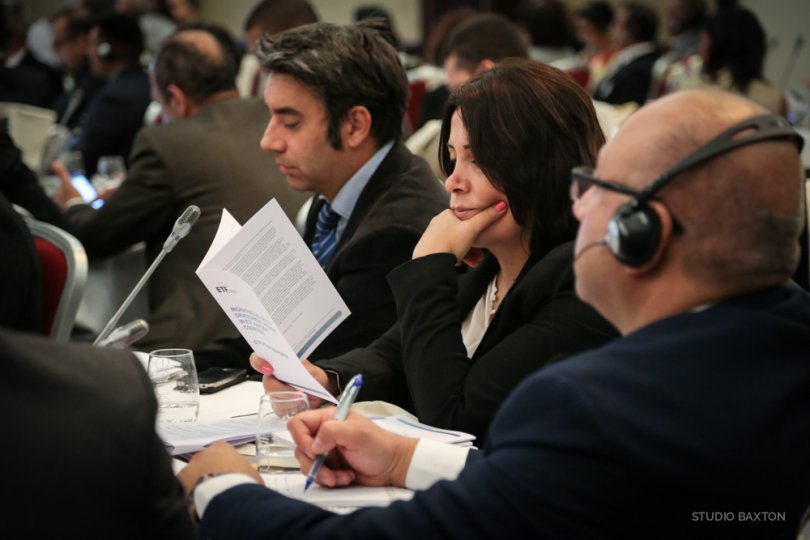
Policy analysis and progress monitoring – Torino Process
Torino Process 2022–24
Results and data
- Country monitoring 2023: Albania, Algeria, Armenia, Azerbaijan, Bosnia and Herzegovina, Egypt, Georgia, Jordan, Kazakhstan, Kosovo, Kyrgyzstan, Lebanon, Moldova, Montenegro, Morocco, North Macedonia, Palestine, Serbia, Tunisia, Türkiye, Ukraine
- Updated 2024 Country monitoring reports: Algeria, Egypt, Kazakhstan, Kyrgyzstan, Morocco, Palestine, Tunisia, Ukraine
- Cross-country monitoring: Education, skills and employment: Trends and developments 2024 Education, skills and employment: Trends and developments 2023
What is the Torino Process?
The Torino Process is a periodical review of policies and practices in vocational education and training (VET) in support of learners and their participation in society and the labour market. It is carried out by the partner countries of the European Training Foundation (ETF) in South Eastern Europe (including Türkiye), Eastern Europe, Central Asia, and the Southern and Eastern Mediterranean. Launched in 2022, the sixth round of the Torino Process will run until 2024.
Focus
The overall focus of the Torino Process is on describing and analysing developments and challenges in human capital development, and the ways in which countries mobilise their VET systems to address these challenges. The Torino Process 2022–24 focuses specifically on lifelong learning and pursues two objectives.
1. Monitoring the performance of education and training systems in terms of creating and maintaining good and equitable opportunities for lifelong learning (first level of participation in the new round of the Torino Process (TRP1)).
- How and why: using a carefully curated set of indicators combined with qualitative questions to track system performance in areas pertaining to lifelong learning.
- Deliverables: executive monitoring reports on partner country policies and system performance.
- When and where: a strand of work carried out over the course of one year in all ETF partner countries.
2. Reviewing policies that explain and influence that performance with a view to recommending policy improvements (second level of participation in the new round of the Torino Process (TRP2)).
- How and why: carrying out participatory reviews of policies and practices which matter to improve country monitoring results in lifelong learning.
- Deliverables: policy review reports providing evidence and guidance on how to tackle the demand for quality learning opportunities for all, irrespective of age, gender, socio-economic background and place of origin.
- When and where: a strand of work carried out on demand only and limited to several countries per year, depending on capacity and need.
Key documents
- Torino Process 2022–24: Towards lifelong learning – EN FR AR RU – a leaflet presenting the sixth round of the Torino Process in a nutshell
- Torino Process 2022–24: Towards lifelong learning: Guidelines to a new framework for reviewing policies and monitoring system performance – EN – a compact overview of the new framework for monitoring and policy reviews, and of the process of implementation (TRP1 and 2 levels of participation)
- TRP1. Torino Process framework for monitoring policy and system performance – describes the new framework’s design, focus, and implementation modality, as well as the deliverables (forthcoming)
- TRP1. Torino Process technical report – provides technical details about the proxy indicators included in the framework, the process of compiling the quantitative and qualitative evidence, and the methodology for calculating the composite performance indices included in the national monitoring reports (forthcoming)
- TRP2. Torino Process reviews of policies for lifelong learning: Scope and key thematic areas – EN FR RU – introduces the rationale for the reviews and describes the various thematic areas and guiding questions that a policy review can cover, in addition to areas that may be requested by a partner country
- TRP2. Torino Process reviews of policies for lifelong learning: Methodology of implementation – EN FR RU – describes the steps of the review process, the conditions and modalities for participation and implementation, the responsibilities of those involved, as well as the tentative timing of the review process
Osnabrück Declaration 2020
As a specific strand of policy and system performance, the ETF is actively supporting the implementation of actions in the Osnabrück Declaration in South Eastern Europe and Turkey, in close cooperation with its sister EU agency Cedefop. For information about policy developments in 2021–2022, see Albania, Montenegro, North Macedonia, Serbia and Türkiye country briefs.
The latest country briefs, focusing on policy developments in 2023, are available for Albania, Montenegro, North Macedonia, Serbia and Türkiye.
The Osnabrück Declaration sets out policy actions for the 2021–25 period, in support of the Council Recommendation on VET for sustainable competitiveness, social fairness and resilience, with a focus on:
- resilience and excellence through quality, inclusive and flexible VET;
- a new lifelong learning culture – relevance of continuing VET and digitalisation;
- sustainability – a green link in VET;
- the European Education and Training Area and international VET.